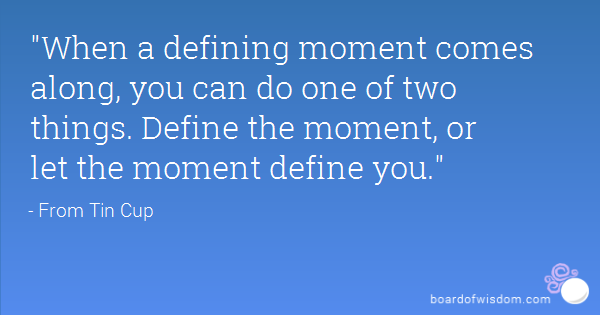

Entrance into spiritual or aesthetic transcendence may also be involved. Thus, a moment that is life-defining can be understood as an extended period of personal growth or change in perspective, where one is an ostensibly different person before and after. Csepregi remarks that as an example, his college years stand out to him as a life-defining moment (9). Csepregi understands the notion of “moment” in a quasi-Hegelian sense, as an often prolonged, but nonetheless definitive period or process of change in one’s life. However, as Csepregi clarifies in the Introduction, this is not a concept whose occurrence can be identified with precision or marked out in the existential terms of an instantaneous “ augenblick,” as characterized by historical philosophers like Heidegger and Kierkegaard. The notion of a “life-defining moment” is the phenomenon most pregnant with ambiguity in the book’s premise. It also contains much thoughtful engagement with the work of other continental philosophers of the human person, most notably Max Scheler, Helmuth Plessner, and Eugène Minkowski to name a few. Written in a lively and accessible style, Csepregi’s book employs illuminating examples from literature, biography, and memoir. To this end, as the author states in the Introduction, the work aims to further the philosophy of the human person (5). Proceeding through the phenomenological method, Gabor Csepregi explores the first-person experience of moments or changes that often are definitive for the course of one’s life and personal development. Avoiding a scholarly approach, it is not a theoretical treatise that analyzes the notion of a life-defining moment conceptually.

Above all, it is the unique instance of a philosophical work that immediately contributes to knowledge for life without burdening the reader with technical vocabulary and complex argumentation. This book is a contribution to phenomenological anthropology and to contemporary philosophy more broadly.


 0 kommentar(er)
0 kommentar(er)
